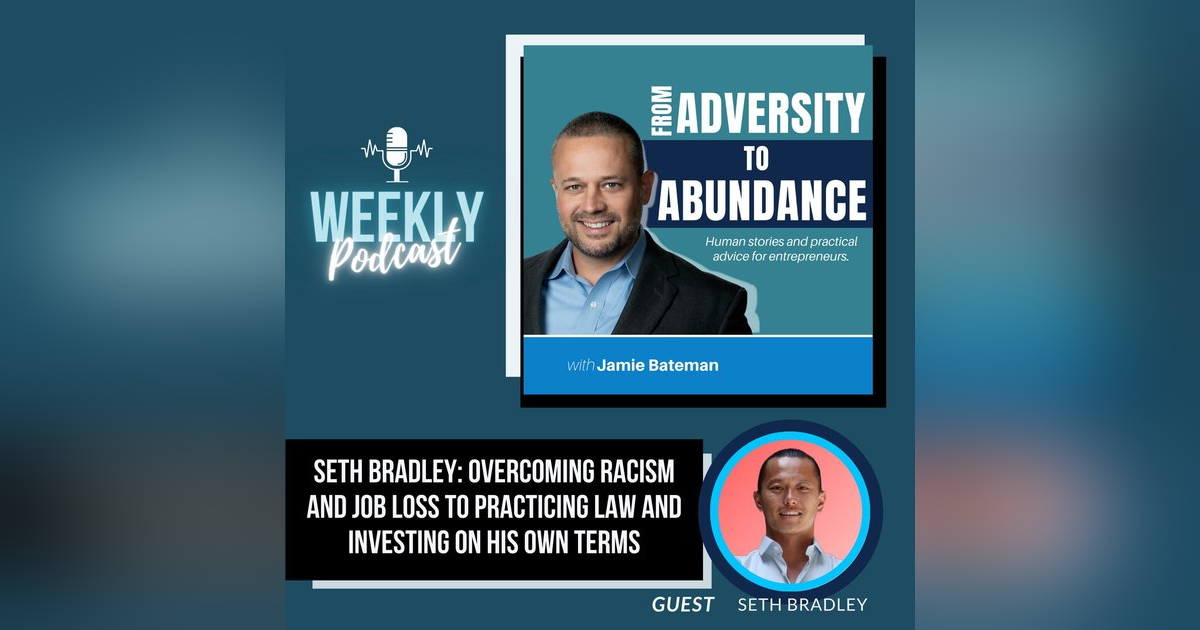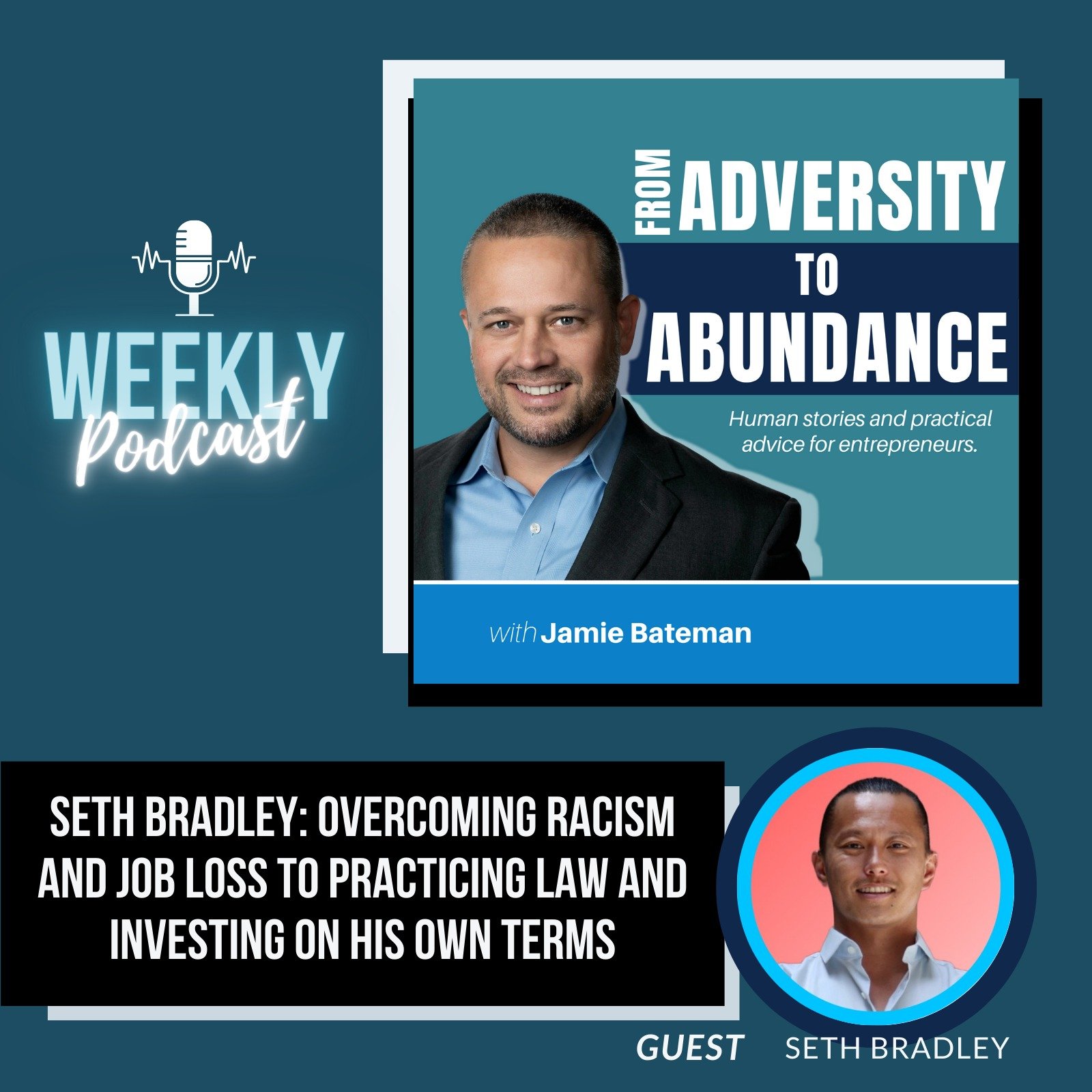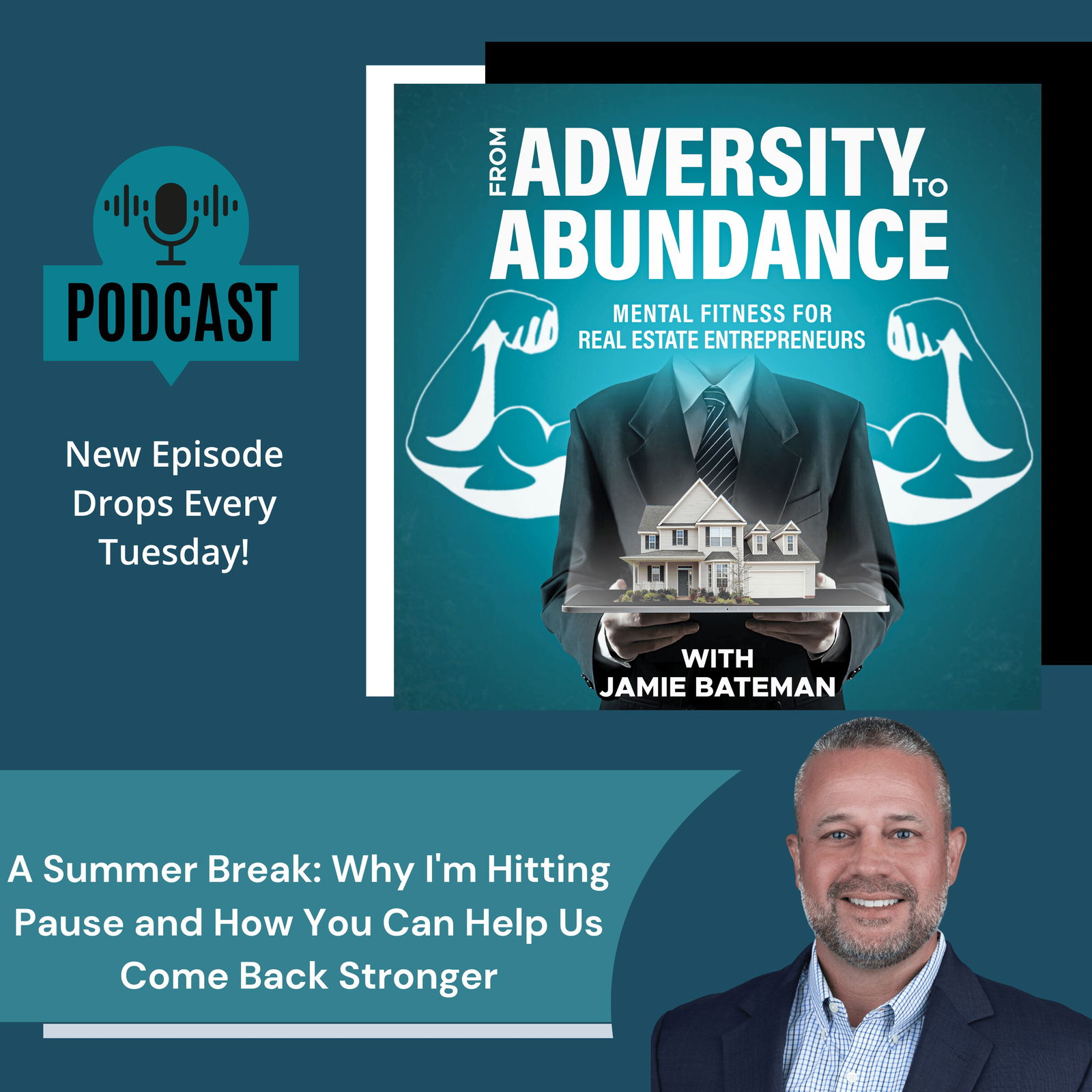Seth Bradley: Overcoming Racism and Job Loss to Practicing Law and Investing on His Own Terms


Discover the extraordinary journey of Seth Bradley as he defied stereotypes and overcame adversity to find his true calling. From being a stranger in his own home state to facing racial slurs, Seth's story takes an unexpected twist that will leave you in awe. Seth Bradley is a powerhouse in the world of commercial real estate and law. Raised in rural West Virginia, his journey to success took determination and resilience. He started his career in law, working for reputable firms before finding his passion in real estate. Seth astonishes with his adeptness in the field, boasting of deals that range from multi-million to multi-billion dollars across the spectrum. Out of suit and tie, he's just a regular guy who enjoys sharing his experiences, wisdom and invaluable lessons from his struggles, departure from medicine, and subsequent venture into real estate. Brace yourself for a tale of resilience, ambition, and the pursuit of destiny.
In this episode, you will be able to:
- Discover Seth's inspirational journey from trials to triumphs in the real estate realm.
- Learn about Seth's transition from the medical field to real estate, emphasizing the importance of following your true passions.
- Gain insights into the art of legally raising capital in real estate and the repercussions of violating laws.
- Visit Law Capital Partners website to learn more about Seth Bradley's company and their services
- Consider attending one of Seth Bradley's speaking engagements or workshops to learn directly from him about real estate investing strategies and syndication
- Join Seth Bradley's email list to receive exclusive content, investment opportunities, and updates on real estate investing
- Consider joining a mastermind group or networking event in the real estate industry to connect with like-minded individuals and learn from experienced professionals, such as Seth Bradley
“So, I mean, for me, overcoming the adversity to abundance was just taking that accountability and turning that into my own businesses and how I handle things myself and being able to translate that to this abundance, which for me is the flexibility of time.”
Books and Resources
Connect with Seth Bradley:
LINKTREE: https://linktr.ee/sethbradley
FACEBOOK: https://www.facebook.com/sethpaulbradley
INSTAGRAM: https://www.instagram.com/passiveincomeattorney/
LINKEDIN: https://www.linkedin.com/in/sethpaulbradley/
EMAIL: seth@passiveincomeattorney.com
Haven Financial:
https://www.myfinancialhaven.com/jamiebateman/
ATTENTION:
Unlock the secrets to a transformative life with “From Adversity to Abundance: Inspiring stories of Mental, Physical and Financial Transformation”. Buy your copy now and embark on a journey from challenges to triumphs!
AMAZON: https://www.amazon.com/dp/B0CGTWJY1D?ref_=pe_3052080_397514860
Connect with us
WEBSITE: https://www.adversity2abundance.com
Leave us a rating or review: https://www.adversity2abundance.com/reviews/new/ or here
Got comments, feedback or suggestions? We’d love to hear it! https://www.adversity2abundance.com/contact/
Follow From Adversity to Abundance Podcast
FACEBOOK: https://www.facebook.com/profile.php?id=100089126144055
INSTAGRAM: https://www.instagram.com/adversitytoabundancepodcast/
LINKEDIN: https://www.linkedin.com/company/89949391/admin/feed/posts/
YOUTUBE: https://www.youtube.com/@FromAdversity2AbundancePodcast
Connect with Jamie
BOOK: From Adversity to Abundance: Inspiring Stories of Mental, Physical, and Financial Transformation
LINKEDIN: https://www.linkedin.com/in/jamie-bateman-5359a811/
TWITTER: https://twitter.com/batemanjames





